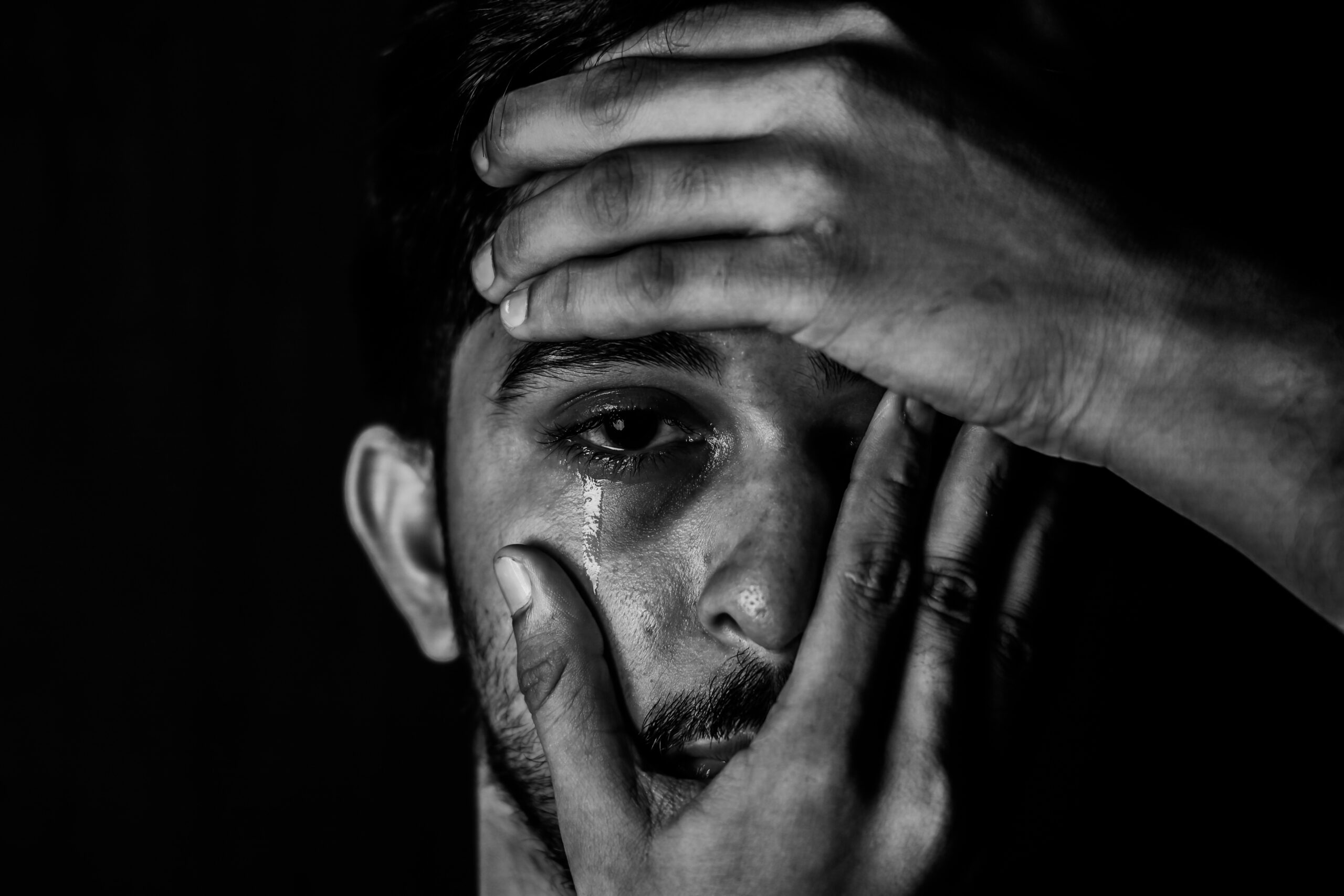Explore the reasons why men process pain and grieve differently than women. Before chalking it up to “they just don’t care,” consider that they may have been unwittingly taught to suppress their pain.
Do you ever wonder why some men grieve differently than women, or sometimes not at all? If you are worried about a male partner’s lack of emotion during a period of grief, it may have much less to do with him simply “not caring,” and a lot more to do with his primitive hardwiring and the unspoken societal pressure placed on him to be strong, never break, and never show weakness.
When families lose a child, marriages are either strengthened or crumble in the face of grief. Oftentimes, women report that their husbands “don’t care” or aren’t showing any emotion while the woman can’t seem to pick herself off of the floor after bawling inconsolably in the fetal position.
But there is a difference in the way women grieve versus men. And the man in your life may truly be struggling to process his own complex emotions based on a myriad of variables that he may have experienced growing up.
3 Reasons Men Might Be Resistant to Seeking Help with Grief
Before you conclude that your spouse just doesn’t care or isn’t grieving the way you think he should, let’s unpack 3 reasons why men don’t get the help they need to navigate grief.
- Men typically have smaller social networks. Because men don’t often have strong support systems, they internalize pain, isolate themselves, or both. Further, the lack of a robust support system prevents them from asking or receiving support or encouragement.
- Societal pressure to “be strong.” Cultural and societal messages discourage men from showing vulnerability, preventing them from processing and grieving in a healthy way for fear of not being accepted or worse, berated for being emotional. “Man up,” “Suck it up,” and “Boys don’t cry” are all phrases that hallmark many male childhoods that later developed into resounding societal messages that obscure a healthy path to healing for men today.
- Their upbringing. Men who were raised by Baby Boomers or the generations prior might have a harder time visibly showing emotion during seasons of grief. These pull-yourself-up-by-the-boot-straps generations of parents spent much of life in survival mode, oftentimes completely unaware especially if you consider that many of them were raised during prolific wars that shaped nations. These family dynamics may have put a heavy emphasis on boys being “strong” and never shedding tears. Just like all of us, the messaging we received in our formative years molds us and stays with us well into adulthood; and without identifying and processing these unhealthy coping mechanisms, it’s hard to even acknowledge that the way you have been raised might be wrong in the first place.
While there is no one-size-fits-all to grieving and certainly not all men embody these obstacles to finding help and expressing their emotions, there is no mistake that evolutionarily, men have been the protectors, the hunters, and the fighters. And so identifying and processing complex emotions is just not something that might come as naturally to a woman, who is more in tune with her emotions and feels more comfortable expressing them. Still, everyone, regardless of gender, should not navigate the death of a loved one alone or resort to isolation in a counterintuitive effort to heal.
So when you feel as though your loved one is not responding to the same event the way you are or the way you think they should, consider that there may be more factors that come into play.
Grief Looks Different For Everyone
If you have been affected by the death of a loved one and you are struggling to process the complex emotions that have followed, you are not alone, and isolation is never the answer.
Are you feeling alone in your grief or confused about how your partner may be processing the loss? We see you, we know you’re hurting, and want to offer you a safe place to share your story and feel supported in your healing journey. Contact us today to set up an appointment and spend some time with us – we’re here for you. To learn more about why grieving is so exhausting, join our private Facebook group.
Sharon Brubaker is a certified Life Coach and credentialed Grief Specialist who, along with her team, teaches women who are grieving how to process their thoughts and emotions. To learn more about navigating grief within the family, listen to the full podcast episode here or download my free e-Book, The Griever’s Guide, which equips you with the tools to live life after grief; because no griever should have to navigate a broken heart on their own.




